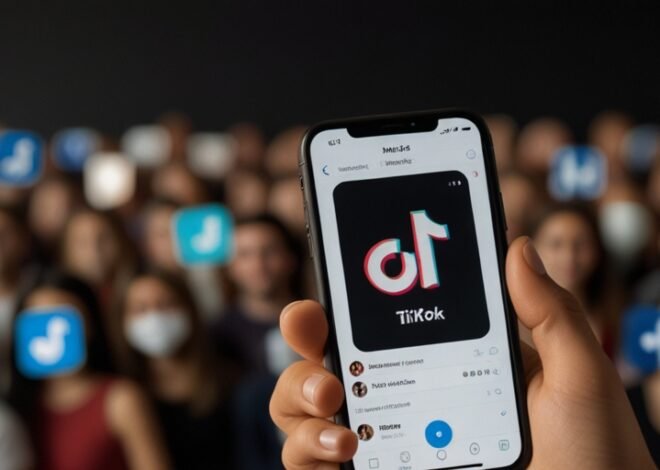
TikTok’s “DeepTalk” Feature Raises Concerns about AI
The latest feature introduced by TikTok known as DeepTalk which uses AI to create comments on videos has raised controversy among users and tech ethicists. The new feature is still in beta and works by using a user’s view history and comments to write comments that resemble the user’s style.
As TikTok claims that it will help to boost engagement and reduce time spent moderating content, opponents argue that it may result in a surge of fake interactions and contribute to the distinction between the posts created by people and those created by bots.
Some of the early users of DeepTalk have expressed different results while using the tool. Some appreciate it for the capability to come up with the replies that are in the same tone as the user, while others consider the comments generated as creepy or irrelevant.
TikTok user @dancingqueen98 recalled her experience of the feature leaving a comment on a video about a lost pet and said, “It was sweet, but also weird because I hadn’t actually written it myself. ”
Critics have also expressed concerns on the data that would be collected for such an option. “To create comments that are similar to the user’s comments the AI has to process a large amount of personal data,” stated Dr. Samantha Hoffman, a privacy researcher. This raises some of the most important questions such as the issue of data protection and its misuse.
There are also concerns about DeepTalk’s ability to perpetrate fake news or promote hatred. If the AI is trained with users who post a lot of provocative or fake news, then it will do so as well on a larger scale. TikTok has said that the feature has measures to ensure that it does not create negative content but some scholars are not convinced.
DeepTalk is launched at a time when social media platforms have come under a lot of criticism concerning their effects on mental health and social interactions. Dr. Michael Lee, a social psychologist, has noted that the comments made by AI can only worsen the situation and contribute to the decline of real people’s interaction.
“There is already an issue of performative behavior on the social media platform” Lee said. ”If people start delegating their communication to AI, it may result in even less substance and substanceless communication. ”
Nevertheless, there are some content creators who believe that there are some advantages in the use of the technology. The TikToker @makeupmagic said to her followers that “as a creator who receives thousands of comments, it could be helpful to have AI to interact with more of my audience. ” But she said that she would like to make sure that she disclose which comments were made by the AI.
While the discussion goes on, TikTok has stressed that DeepTalk is currently in the testing phase and that users’ input will determine its future. The company’s representative said, “We are dedicated to the responsible innovation and will take into account all the opinions while working on this feature. ”
This is the case with DeepTalk, a recent controversy that shows the social media platforms’ issues with the further development of AI. With the advancement of these tools, it is possible that the distinction between human and machine generated content might continue to get obscured thereby posing several questions pertaining to the concepts of authenticity, privacy and the future of communication on the internet.


